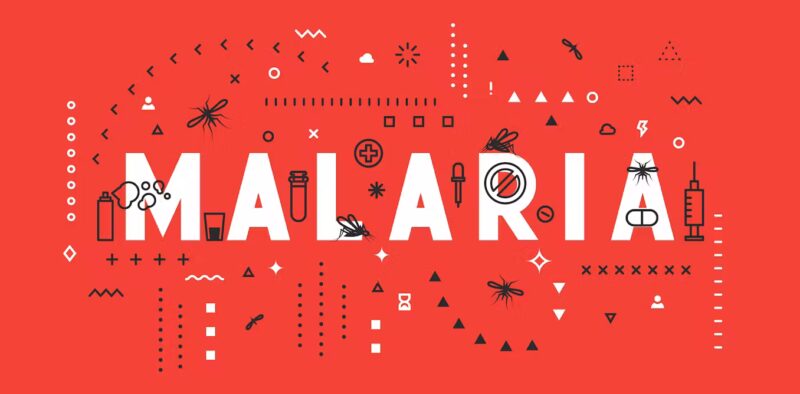In an era where climate change is no longer a distant threat but a present reality, one of its most alarming consequences is the resurgence of diseases like malaria—especially in vulnerable regions of the world. The intersection of environmental shifts and global health is not just a concern for scientists—it’s a call to action for governments, businesses, and communities alike.
This free report dives deep into the latest research from the Malaria Atlas Project and Boston Consulting Group, supported by funding from the Gates Foundation, which models how rising temperatures, shifting rainfall patterns, and extreme weather events will shape the future of malaria through 2049.
More than just a scientific forecast, this document explores how climate-resilient companies—many of them featured in the Corporate Knights Global 100 list of the world’s most sustainable firms—can become powerful allies in the fight against climate-driven disease.
📊 What You’ll Discover Inside
You’ll find a comprehensive analysis that connects the dots between climate science, public health, and corporate responsibility. From detailed benchmarking tables to actionable policy recommendations, this report equips readers with the tools they need to understand and respond to the growing threat of malaria in a warming world.
🔍 A Data-Driven Look at the Future of Malaria
The numbers tell a sobering story:
- In 2022 alone, there were 249 million cases of malaria and 608,000 deaths, mostly among children under five in sub-Saharan Africa.
- By 2050, 75% of sub-Saharan Africa’s population will live in areas where climate change complicates malaria eradication.
- Between 2030 and 2049, an additional 554,000 deaths are projected due to climate-related disruptions—92% of these driven by extreme weather events such as floods and cyclones.
These figures underscore the urgent need to adapt our current strategies and invest in systems that can withstand the shocks of a changing climate.
🏢 How Eco-Conscious Companies Are Stepping Up
While governments and NGOs have traditionally led public health responses, the private sector—particularly those leading in sustainability—is increasingly recognized as a key player in building resilience.
🌱 The Corporate Knights Global 100: Leaders in Sustainability
The Corporate Knights Global 100 ranking (2025 edition) highlights the top 100 publicly traded companies making measurable progress toward sustainability. These firms outperform their peers across multiple metrics:
- Sustainable Revenue: 53% average, compared to 15% globally
- Sustainable Investment: 58%, versus just 15% for other large firms
- Carbon Productivity: $1.3 million per tonne CO₂e, more than double the global average
Among them are companies like Schneider Electric, IBM, Google, and Patagonia, whose expertise in renewable energy, AI, supply chain transparency, and ethical sourcing can be leveraged to support malaria prevention and treatment efforts.
✅ Real-World Applications of Corporate Sustainability in Public Health
Here’s how some of the world’s most innovative companies are already contributing—or could contribute—to mitigating climate-driven malaria:
- Schneider Electric and Stantec Inc. can help build climate-resilient healthcare infrastructure, powered entirely by renewable energy.
- Patagonia and Unilever offer lessons in ethical supply chains that could improve the delivery of medical supplies to remote, high-risk zones.
- IBM and Google are pioneers in using artificial intelligence and geospatial analytics to predict outbreaks, optimize resource allocation, and enhance surveillance systems.
- Vestas Wind Systems, Ørsted, and SMA Solar Technology AG provide off-grid solar solutions that power clinics in rural areas, improving access to life-saving care.
By integrating public health goals into their ESG strategies, these companies can help create a healthier, more resilient world—one where climate change doesn’t come at the cost of human lives.
🤝 A Call for Cross-Sector Collaboration
Climate change is not just an environmental crisis—it is a public health emergency. Without urgent, climate-informed action, malaria deaths will rise sharply, especially in Africa. But with targeted investments, adaptive strategies, and cross-sector collaboration, the worst outcomes can be avoided.
This report makes it clear: the time to act is now. The Corporate Knights Global 100 and other eco-conscious companies have the technology, resources, and influence to make a real difference. By aligning their sustainability agendas with global health goals, these firms can help build resilient communities, reduce disease burdens, and protect the most vulnerable from the escalating threat of climate change.
Together, we can turn the tide on malaria—not despite climate change, but because of our collective response to it.
📥 Get Your Free Copy Today
This comprehensive report is available free of charge, packed with insights, benchmarks, and real-world examples of how the world can prepare for and mitigate the impact of climate change on malaria.
📄 Format: PDF
🕒 Read Time: ~15–20 minutes
🎯 Audience: Policymakers, NGOs, researchers, educators, students, and CSR professionals






